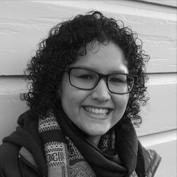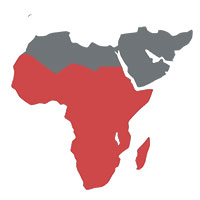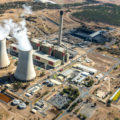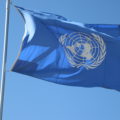State of Play: Midweek Rollercoaster but Not Much Else…
Kya Lal | November 13, 2016.
For the most part COP22 has been abiding by the adage of slow and steady wins the race. While climate negotiations of recent years have opened to grand fan-fare and fireworks, the Marrakech talks have been noticeably quiet. So-much-so that even CAN International have struggled to dig up Fossil of the Day nominations over the course of the week.
The early entry into force of the Paris Agreement, has been a catalyst for increased levels of climate action, and for the slowing down of negotiations at COP22. Countries yet to ratify the Agreement, such as Australia and Japan, have been fervently rushing to do so driven by political pressure and fear of being left outside the negotiating tent.
Conversely, negotiation streams have been creeping slowly along, focussing on the intricacies of establishing governance frameworks and the technicalities of language within both the pre-2020 and post-2020 climate mechanisms. The devil is in the detail.
Major focus areas have been finance, adaptation and loss and damage. Even more astounding has been the reaffirmation of developed countries’ commitments to collectively provide US$100 billion in climate funding to developing countries.
However, discussions are still rife with striking a balance between mitigation and adaptation finance. Talks are still predominantly centred on mitigation finance. This has raised concerns amongst developing countries, which would like to see a greater focus on adaptation funding.
But the lull of the negotiations in Marrakesh was soon shattered by United States election result. Not only did it disrupt the steady negotiations with high emotions, but also unending questions of what Donald Trump means for climate change. Questions which have been exacerbated by Trump’s hot air around cancelling the Paris Agreement.
Despite early analysis suggesting that this would be extremely difficult for Trump to achieve—especially within a time frame shorter than four years—only time will tell whether he will be able to follow through.
If Trump fails in this area, he may take things a step further by withdrawing from the UNFCCC entirely. As the world’s second biggest emitter, the withdrawal of the US would undermine—though by no means prevent—the ability of the UNFCCC to meet its core objective of preventing dangerous climate change.
Falling short of both these scenarios, a Trump-led US could still stall climate action by neglecting to meet their domestic obligations under the Paris Agreement.
Coming down from the emotional highs (and lows) of the US election, things slowly began to get back to business in Marrakech. On Thursday the COP22 Presidency released guidelines to determine its interpretation of the Paris Agreement, as well as a proposal for the 2017 and 2018 work and reviews. The document also contained placeholder text for decisions on the ‘Facilitative Dialogue’ for 2018, a discussion surrounding pre-2020 ambition and progress especially on countries contributions.
By the end of week one, sessions on the facilitative dialogue had begun in order to establish the framework for future meetings and negotiations up to 2018. These sessions highlighted the concerns of many countries around technical aspects of the dialogue. Nonetheless, hope remains that any concrete outcomes emerging from these sessions would mean that Ministers are more likely to commit to to targets set in the coming week.
A further notable trend has been both the inclusion and the exclusion of civil society organisations from the negotiations. In negotiating streams such as loss and damage, civil society were invited into the first open negotiations in years. Then, in discussions around carbon pricing and emissions trading, however, countries such as Venezuela moved to exclude business and industry observers from the room. This subsequently resulted in the exclusion of all civil society, prompting a mass outcry.
As we move into the second week of the negotiations many people eagerly await the outcome of the COP23 presidential bid. Earlier in the week, it emerged that Fiji made a bid to hold the presidency, though with the conference itself to be held in Bonn, Germany. The final decision sits with the UNFCCC secretariat, who are currently in the process of deliberation. With the impending arrival of Fijian Prime Minister Frank Bainimarama this week, the outcome will likely be in Fiji’s favour.













comment